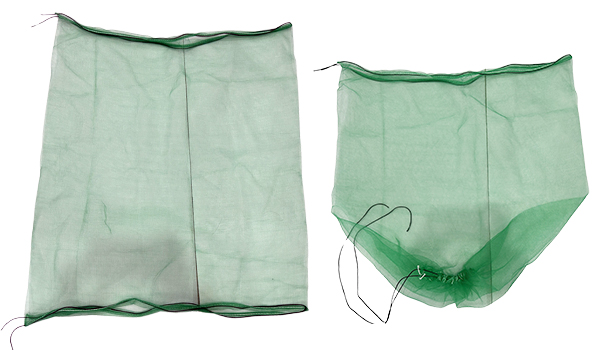
In the world of agriculture and packaging, date palm mesh bags have emerged as a crucial tool.
Made from 100% High-Density Polyethylene (HDPE), these bags offer a range of benefits for both farmers and consumers.
This article explores the versatility, advantages, and practical applications of date palm mesh bags, with a special focus on how they protect date palm trees.
What are Date Palm Mesh Bags
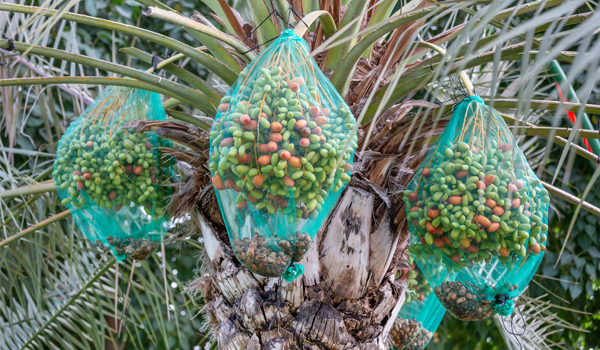
Date palm mesh bags also called date palm harvest bags or date palm net bags, they are specifically designed to aid in the cultivation and harvesting of dates.
These bags, crafted from 100% HDPE, are strong, durable, and resistant to various environmental factors. The mesh design ensures optimal airflow while protecting the dates from pests and harsh weather conditions.
Advantages of HDPE Date Palm Mesh Bags
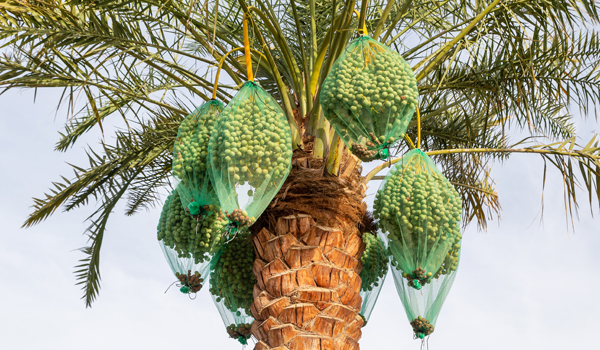
Durability: HDPE is known for its high tensile strength and resistance to wear and tear. This makes date palm mesh bags highly durable, capable of withstanding the rigors of agricultural use.
Lightweight: Despite their strength, HDPE mesh bags are lightweight, making them easy to handle and use in large quantities. This is particularly beneficial for farmers who need to cover numerous date clusters.
Enhanced UV Resistance: HDPE can be treated with UV stabilizers to improve its resistance to ultraviolet (UV) rays. This treatment is essential for protecting the dates from sun damage during the ripening process.
Reusable and Cost-Effective: HDPE date palm mesh bags can be reused multiple times, making them a cost-effective option for farmers. Their durability ensures that they remain functional over several growing seasons.
Breathability: The mesh design allows for proper air circulation, which is crucial for preventing mold and ensuring the dates dry evenly. This helps maintain the quality and taste of the dates.
How Date Palm Mesh Bags Protect Date Palm Trees
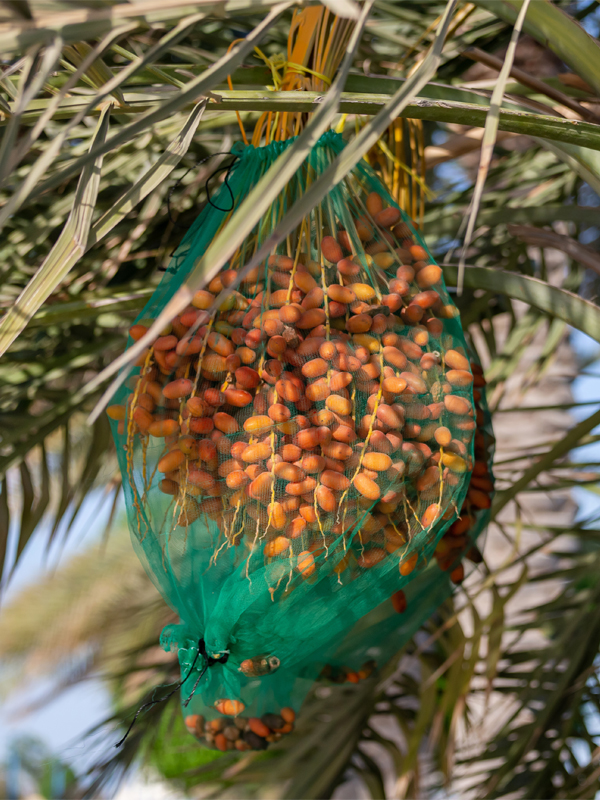
Pest Protection: One of the primary functions of date palm mesh bags is to protect the date clusters from pests.
Insects and birds can cause significant damage to the fruit, but the mesh acts as a barrier, preventing these pests from reaching the dates.
Weather Protection: Date palm mesh bags shield the dates from adverse weather conditions.
They offer protection against heavy rains, which can cause the dates to rot, and from strong winds that can dislodge the fruit from the trees.
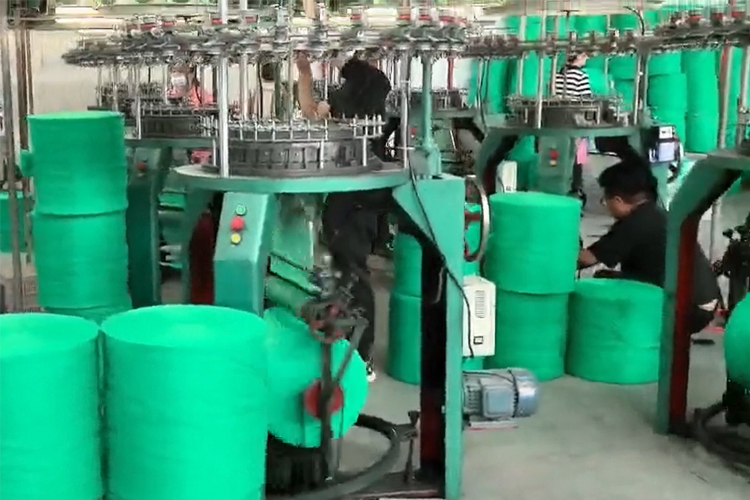
Sun Protection: While dates need sunlight to ripen, excessive exposure can lead to sunburn and damage the fruit.
The mesh bags, especially those treated with UV stabilizers, filter the sunlight, providing just the right amount of exposure to ensure optimal ripening without causing harm.
Reduction of Physical Damage: The bags help in minimizing physical damage to the dates during their growth period.
By enclosing the fruit clusters, they prevent abrasion and bruising that can occur from friction against the tree or other dates.
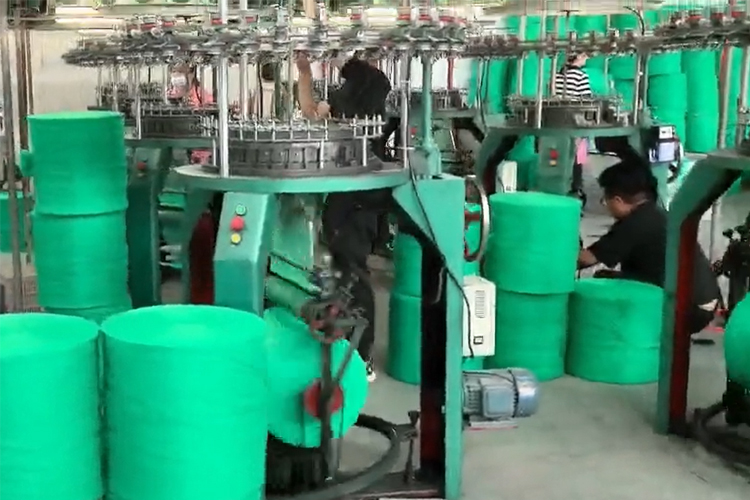
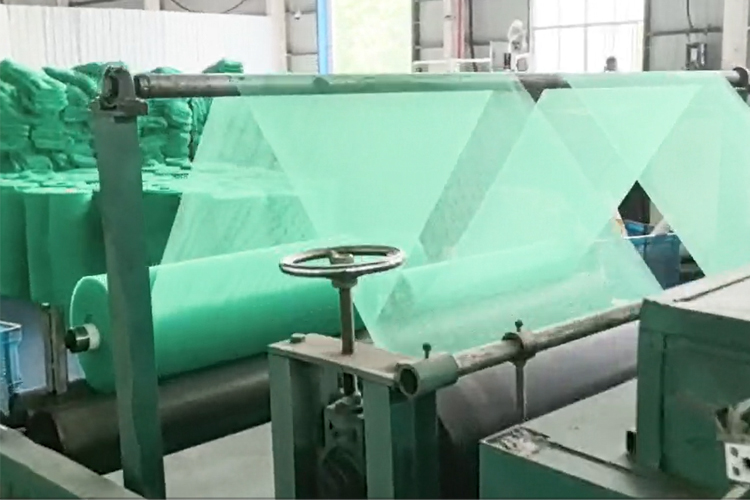
Enhanced Ripening Process: By creating a controlled environment around the date clusters, the mesh bags help in achieving a more uniform and enhanced ripening process.
This results in higher quality dates that are more appealing to consumers.
Reduction of Spoilage: The breathability of HDPE mesh bags ensures that there is adequate air circulation around the fruit.
This helps in reducing moisture buildup and prevents mold growth, thereby reducing spoilage and waste.
Practical Uses
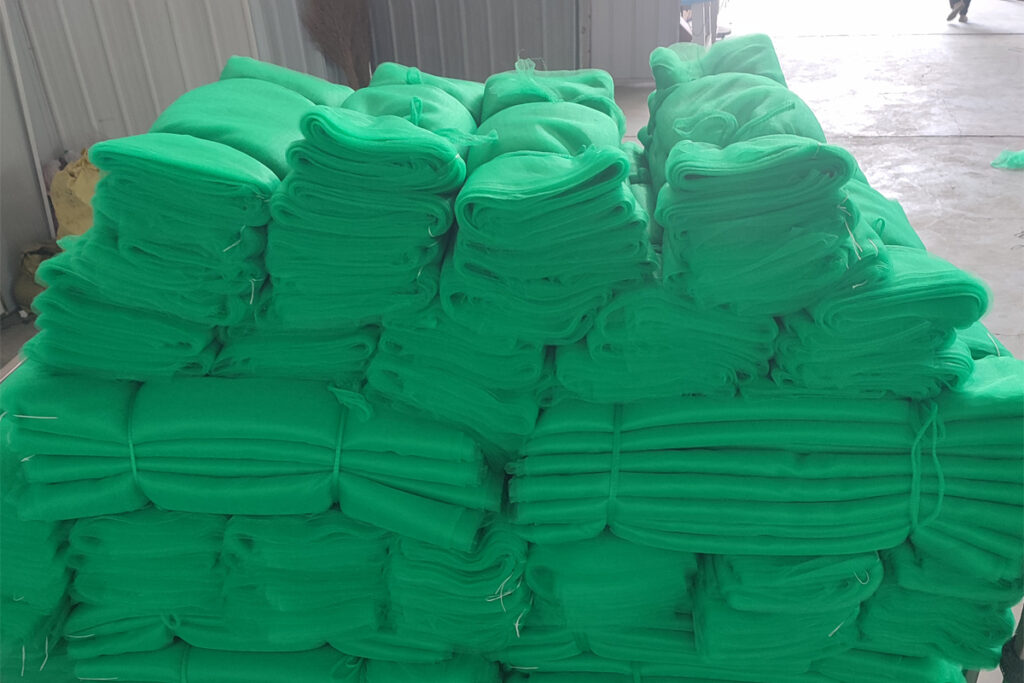
Agricultural Applications: The primary use of date palm mesh bags is in the agricultural sector. Farmers use these bags to cover date clusters, protecting them from pests, birds, and adverse weather while allowing the fruit to ripen naturally.
Grocery and Storage: Beyond agriculture, these mesh bags can also be used by consumers for grocery shopping and storage.
They are ideal for holding fruits and vegetables, keeping them fresh longer due to the breathable material.
Packaging Solutions: HDPE date palm mesh bags are also used in packaging for transportation. Their strength and durability ensure that the dates arrive at their destination in optimal condition.
Environmental Considerations
While HDPE is a type of plastic, it is recyclable, and efforts can be made to ensure these bags are disposed of responsibly.
Recycling HDPE reduces the environmental impact and contributes to a more sustainable use of resources.

